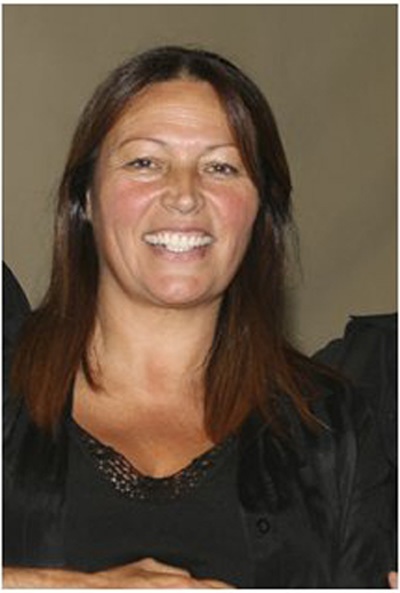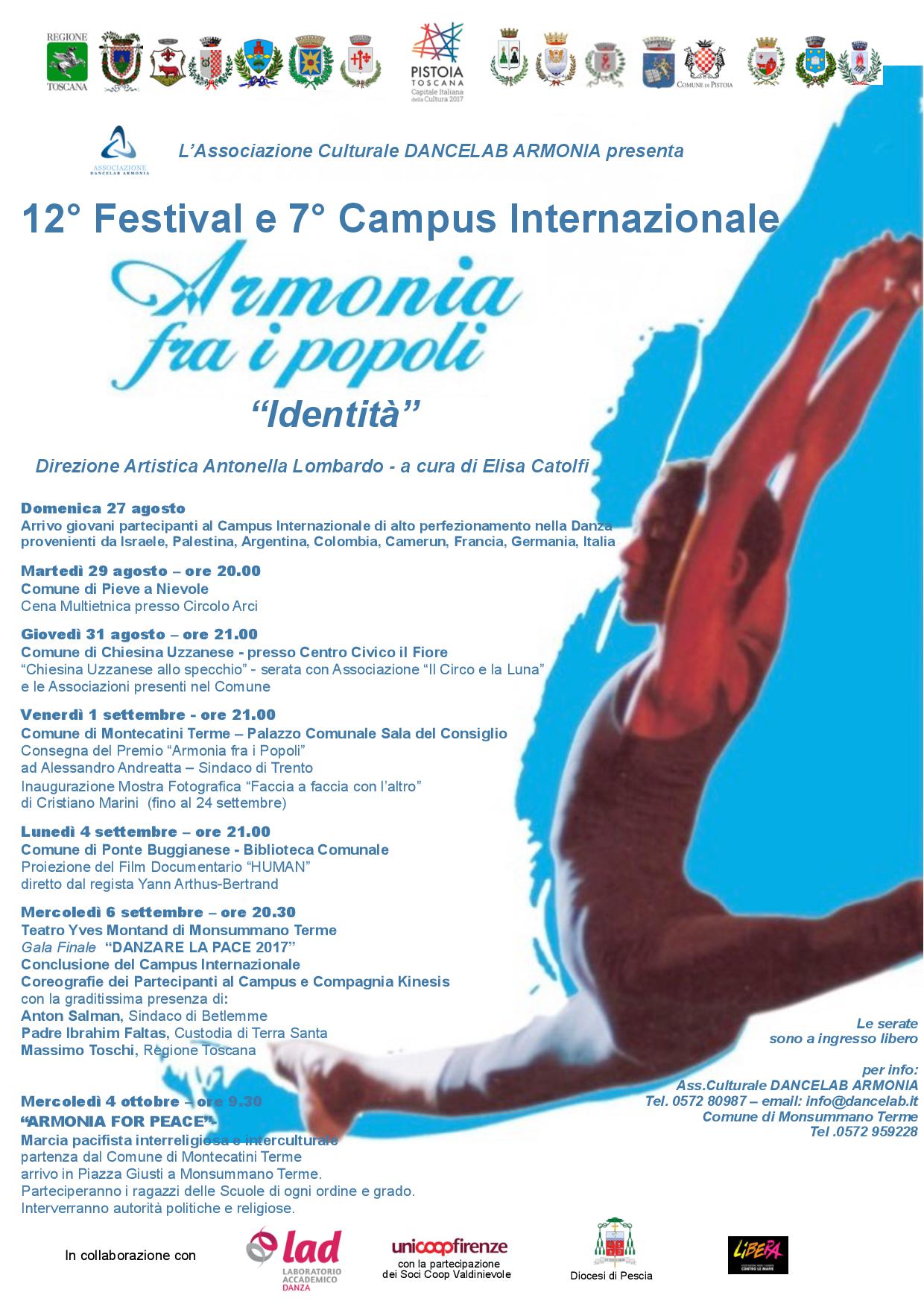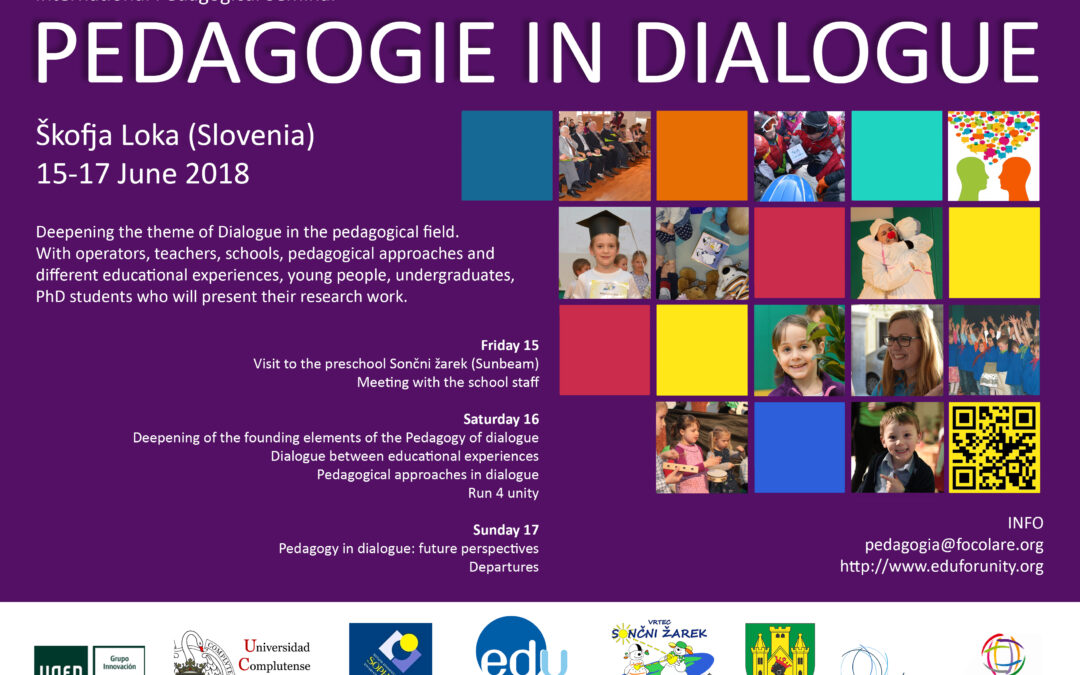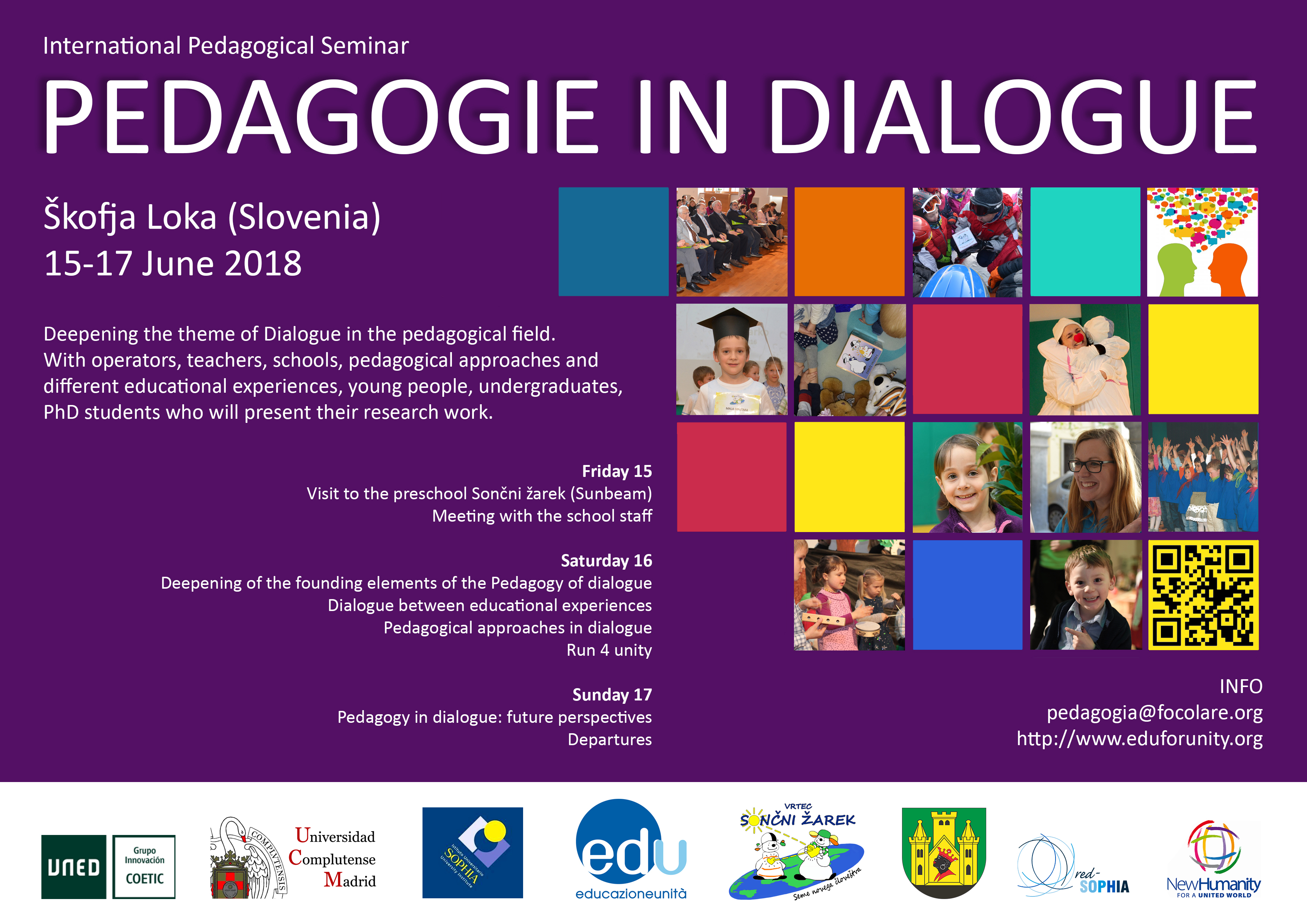
Apr 26, 2018 | Non categorizzato

Antonella Lombardo
 That was the beginning of the Harmony DanceLab Association. The aim of this association is to develop dance as a means of creating harmony and dialogue among different cultures and so contribute to peace in the world. For the last thirteen years it has organised “Harmony among People” an international festival, involving not only a dance school of students from areas of conflict in Palestine and Israel but also many people from the local community. Peace education underpins the professional and human formation that the students receive. Over the years, the Association has spread to various parts of Italy and Budapest and, since 2014, has worked in the Middle East with the John Paul II Foundation and in collaboration with the “Children Without Borders” Institute and Custodians of the Holy Land. Antonella continues, “Peace is not just a goal to reach but an everyday process that requires great effort and commitment. It is an educational challenge. Students learn dance techniques but also experience the power of a language that is superior to Art. On the last evening, they tell everyone about the respect, understanding and fraternity they have experienced.” An intercultural and inter religious Peace March is also part of the project. This takes place every year on the 4th October and draws people from institutions, schools, voluntary groups and faith communities (Christian, Muslim and Jewish) in Tuscany.
That was the beginning of the Harmony DanceLab Association. The aim of this association is to develop dance as a means of creating harmony and dialogue among different cultures and so contribute to peace in the world. For the last thirteen years it has organised “Harmony among People” an international festival, involving not only a dance school of students from areas of conflict in Palestine and Israel but also many people from the local community. Peace education underpins the professional and human formation that the students receive. Over the years, the Association has spread to various parts of Italy and Budapest and, since 2014, has worked in the Middle East with the John Paul II Foundation and in collaboration with the “Children Without Borders” Institute and Custodians of the Holy Land. Antonella continues, “Peace is not just a goal to reach but an everyday process that requires great effort and commitment. It is an educational challenge. Students learn dance techniques but also experience the power of a language that is superior to Art. On the last evening, they tell everyone about the respect, understanding and fraternity they have experienced.” An intercultural and inter religious Peace March is also part of the project. This takes place every year on the 4th October and draws people from institutions, schools, voluntary groups and faith communities (Christian, Muslim and Jewish) in Tuscany.  How many young people have you met in your career as a teacher of dance? “Thousands. Dance is difficult and demanding but young people are drawn to it. TV talent shows also attract people but give a distorted idea about what is truly art. You have to provide an experiential dimension to make an impact as a teacher. Nowadays, young people do not accept the theory without experiencing the importance of it for themselves.” Does art have a social value? Antonella Lombardo is certain that it does. “Art is like the prophecy of a new type of Humanism – a means of achieving social harmony. It is a reflection of Beauty that is Love. In conclusion, she says, “Keeping this in mind as I carry out my profession has changed my life totally. I have found meaning in what previously seemed to have no sense. I try to give young people the opportunity to do the same so that their lives might be a work of art, just as Chiara Lubich taught me.” Chiara Favotti See also: www.festivalarmonia.org, www.dancelab.it
How many young people have you met in your career as a teacher of dance? “Thousands. Dance is difficult and demanding but young people are drawn to it. TV talent shows also attract people but give a distorted idea about what is truly art. You have to provide an experiential dimension to make an impact as a teacher. Nowadays, young people do not accept the theory without experiencing the importance of it for themselves.” Does art have a social value? Antonella Lombardo is certain that it does. “Art is like the prophecy of a new type of Humanism – a means of achieving social harmony. It is a reflection of Beauty that is Love. In conclusion, she says, “Keeping this in mind as I carry out my profession has changed my life totally. I have found meaning in what previously seemed to have no sense. I try to give young people the opportunity to do the same so that their lives might be a work of art, just as Chiara Lubich taught me.” Chiara Favotti See also: www.festivalarmonia.org, www.dancelab.it
Apr 26, 2018 | Non categorizzato, Word of
for ages 4-8 | for ages 9-17 | Print | Audio
St. Paul was writing to Christians in the region of Galatia, who had heard the Gospel proclamation from him. He was scolding them for not understanding the true meaning of Christian freedom. For the people of Israel, freedom was a gift from God who had brought them out of slavery in Egypt and led them to a new land, establishing a pact of mutual faithfulness with them. At the same time, Paul strongly affirmed that Christian freedom is a gift from Jesus. In fact, Jesus makes it possible for us, in him and like him, to become children of God who is love. By imitating the Father as Jesus taught us and showed us through his life, we too can learn to have the same attitude of mercy towards everyone, and be at their service. (Mt 5:43-48; Lk 6:36; Mk 10:45). For Paul, the apparent contradiction in “freedom to serve” is possible through the gift of the Spirit that Jesus gave to humanity by his death on the cross. It is the Spirit who gives us the strength to come out of our prison of selfishness, which is burdened with divisions, injustices, betrayals, and violence. He leads us to true freedom. “By contrast, the fruit of the Spirit is love, joy, peace, patience, kindness, generosity, faithfulness, gentleness, and self-control.“ Besides being a gift, Christian freedom is also a commitment. Above all, it is a commitment to welcome the Spirit into our hearts, making room for him and recognizing his voice in us. “Above all, we must become more and more aware of the presence of the Holy Spirit in us,” Chiara Lubich wrote in the October issue of Città Nuova in 2000. “We have a great treasure in our innermost being, but are not sufficiently aware of it … To hear the voice of the Spirit and follow it, we must say no … to temptation, reject its suggestions and say yes to the tasks God has entrusted to us; yes to love for our neighbors; yes to the trials and difficulties we encounter… By doing so, the Holy Spirit will guide us and give our Christian life gusto, vigor, drive and brightness, without which it cannot be authentic. Then, whoever is with us will notice that we are not only children of our natural family, but also children of God.” In fact, the Spirit calls us to step aside from being the center of our concerns in order to be more receptive to others, to listen to them and share material and spiritual goods. He calls us to forgive or take care of the most varied people in different situations of daily life. This attitude allows us to experience the typical fruit of the spirit: our personal growth toward true freedom. This brings out and develops talents and resources in us that would have stayed buried and unknown had we continued living wrapped up in ourselves. Every action of ours is an opportunity not to be missed, to say no to the slavery of selfishness and yes to the freedom of loving. “By contrast, the fruit of the Spirit is love, joy, peace, patience, kindness, generosity, faithfulness, gentleness, and self-control.“ Those who accept the work of the Spirit in their hearts also contribute toward building positive human relations through their daily activities, at home and in society. Carlo Colombino, an entrepreneur, husband and father, owns a company in northern Italy. Out of his 60 employees, around a quarter are not Italian and some of them have had traumatic past experiences. “Even the workplace can and should facilitate their integration,” he told a journalist. “Our work includes quarrying and recycling construction materials, and I have responsibilities toward the environment and the area where I live. Some years ago, the economic crisis hit us hard: should I save the business or the employees? We made some people redundant, talking it over with them and finding the least painful solutions. It was a dramatic experience with sleepless nights. “I can do my job either well or poorly. I try to do it as best I can. I believe in the positive influence of ideas. A business focused only on turnover and figures will not last long. People must be at the center of all we do. I believe in God and am convinced that harmonizing business and solidarity is not a dream.” Let’s courageously set in motion our personal call to freedom, in the environment where we live and work. This will allow the Spirit to touch and renew the lives of many people around us, and move history toward a future of “joy, peace, patience, kindness.” Letizia Magri 3 Cfr. C. Lubich, We have a Treasure, New City, 44 (2000), 10, p. 7.

Apr 26, 2018 | Non categorizzato
 Deepening the theme of Dialogue in the pedagogical field. With operators, teachers, schools, pedagogical approaches and different educational experiences, young people, undergraduates, PhD students who will present their research work. Info: pedagogia@focolare.org Education for Unity
Deepening the theme of Dialogue in the pedagogical field. With operators, teachers, schools, pedagogical approaches and different educational experiences, young people, undergraduates, PhD students who will present their research work. Info: pedagogia@focolare.org Education for Unity


 That was the beginning of the Harmony DanceLab Association. The aim of this association is to develop dance as a means of creating harmony and dialogue among different cultures and so contribute to peace in the world. For the last thirteen years it has organised “Harmony among People” an international festival, involving not only a dance school of students from areas of conflict in Palestine and Israel but also many people from the local community. Peace education underpins the professional and human formation that the students receive. Over the years, the Association has spread to various parts of Italy and Budapest and, since 2014, has worked in the Middle East with the John Paul II Foundation and in collaboration with the “Children Without Borders” Institute and Custodians of the Holy Land. Antonella continues, “Peace is not just a goal to reach but an everyday process that requires great effort and commitment. It is an educational challenge. Students learn dance techniques but also experience the power of a language that is superior to Art. On the last evening, they tell everyone about the respect, understanding and fraternity they have experienced.” An intercultural and inter religious Peace March is also part of the project. This takes place every year on the 4th October and draws people from institutions, schools, voluntary groups and faith communities (Christian, Muslim and Jewish) in Tuscany.
That was the beginning of the Harmony DanceLab Association. The aim of this association is to develop dance as a means of creating harmony and dialogue among different cultures and so contribute to peace in the world. For the last thirteen years it has organised “Harmony among People” an international festival, involving not only a dance school of students from areas of conflict in Palestine and Israel but also many people from the local community. Peace education underpins the professional and human formation that the students receive. Over the years, the Association has spread to various parts of Italy and Budapest and, since 2014, has worked in the Middle East with the John Paul II Foundation and in collaboration with the “Children Without Borders” Institute and Custodians of the Holy Land. Antonella continues, “Peace is not just a goal to reach but an everyday process that requires great effort and commitment. It is an educational challenge. Students learn dance techniques but also experience the power of a language that is superior to Art. On the last evening, they tell everyone about the respect, understanding and fraternity they have experienced.” An intercultural and inter religious Peace March is also part of the project. This takes place every year on the 4th October and draws people from institutions, schools, voluntary groups and faith communities (Christian, Muslim and Jewish) in Tuscany.  How many young people have you met in your career as a teacher of dance? “Thousands. Dance is difficult and demanding but young people are drawn to it. TV talent shows also attract people but give a distorted idea about what is truly art. You have to provide an experiential dimension to make an impact as a teacher. Nowadays, young people do not accept the theory without experiencing the importance of it for themselves.” Does art have a social value? Antonella Lombardo is certain that it does. “Art is like the prophecy of a new type of Humanism – a means of achieving social harmony. It is a reflection of Beauty that is Love. In conclusion, she says, “Keeping this in mind as I carry out my profession has changed my life totally. I have found meaning in what previously seemed to have no sense. I try to give young people the opportunity to do the same so that their lives might be a work of art, just as Chiara Lubich taught me.” Chiara Favotti See also: www.festivalarmonia.org, www.dancelab.it
How many young people have you met in your career as a teacher of dance? “Thousands. Dance is difficult and demanding but young people are drawn to it. TV talent shows also attract people but give a distorted idea about what is truly art. You have to provide an experiential dimension to make an impact as a teacher. Nowadays, young people do not accept the theory without experiencing the importance of it for themselves.” Does art have a social value? Antonella Lombardo is certain that it does. “Art is like the prophecy of a new type of Humanism – a means of achieving social harmony. It is a reflection of Beauty that is Love. In conclusion, she says, “Keeping this in mind as I carry out my profession has changed my life totally. I have found meaning in what previously seemed to have no sense. I try to give young people the opportunity to do the same so that their lives might be a work of art, just as Chiara Lubich taught me.” Chiara Favotti See also: www.festivalarmonia.org, www.dancelab.it


 Deepening the theme of Dialogue in the pedagogical field. With operators, teachers, schools, pedagogical approaches and different educational experiences, young people, undergraduates, PhD students who will present their research work. Info:
Deepening the theme of Dialogue in the pedagogical field. With operators, teachers, schools, pedagogical approaches and different educational experiences, young people, undergraduates, PhD students who will present their research work. Info: